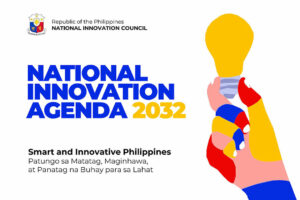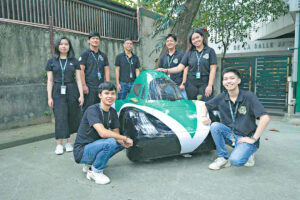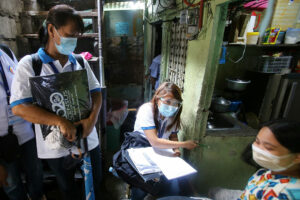19 innovation projects worth over P115M approved

THE PHILIPPINE agency for national innovation has approved 19 projects worth P115 million, National Economic and Development Authority Secretary Arsenio S. Balisacan said on Tuesday.
Majority of the approved projects involve the “pre-commercialization and commercialization requirements of innovative products or services, the enhancement of innovation facilities and services, and the conduct of capacity-building activities,” Mr. Balisacan said at a National Innovation Council meeting.
The meeting was the council’s first under the Marcos administration and the fourth since the agency’s creation in 2019.
The innovation fund is one of the key outputs of the council, he said, noting that it “aims to strengthen entrepreneurship and enterprises engaged in developing innovative solutions.”
One of the approved projects is a creative science program by the Department of Science and Technology’s (DoST) Technology Application and Promotions Institute establishment of a health research and technology innovation hubs by the DoST’s Philippine Council for Health Research and Development.
Others include a DoST-Zamboanga Peninsula project that seeks to bring science and technology “closer to the margins”; an implementation of innovation, science and technology with indoor farming technology by DoST Eastern Visayas; industrial designing and finalization of production drawings for the commercialization of BUHAWI by DoST’s Metals Industry R&D Center; DoST-Davao Region’s proposed enhancement of renewable and sustainable energy technologies using local innovations; and the pilot testing and commercialization of micro impeller rice mill by the Department of Agriculture’s Philippine Center for Postharvest Development and Mechanization.
Projects initiated by local governments were also on the list, including the optimization of incubation centers in Nueva Vizcaya; water collection system with treatment facility in Romblon; farmers’ information and technology service center in Camiguin; and startup ecosystem development program in Naga City, among others.
Academic institutions’ proposals were also approved, including a farm machinery and seeding system by the South Cotabato State College, and the integration of localized maritime information systems by the University of the Philippines Diliman.
In a Palace briefing after the council’s meeting, Mr. Balisacan lamented that the country’s investment in research and development (R&D) remains low.
“Looking at our investment in R&D as a proportion of our gross domestic product, we are at the bottom (level)… almost at the bottom when you see what our neighbors are doing,” he said.
“So, I think it’s high time, it’s really high time that we develop this (innovation) ecosystem.”
During the meeting, the 25-member council approved seven executive members for 2023 to 2026 who come from the business community, academe, and science sector. — Kyle Aristophere T. Atienza




